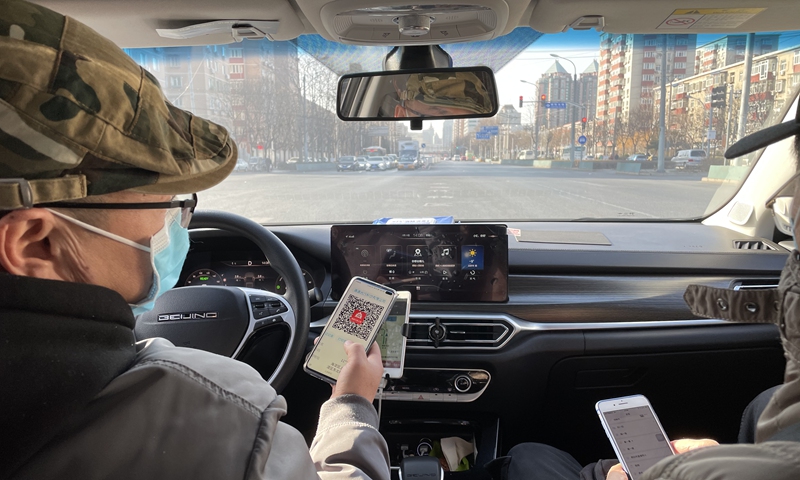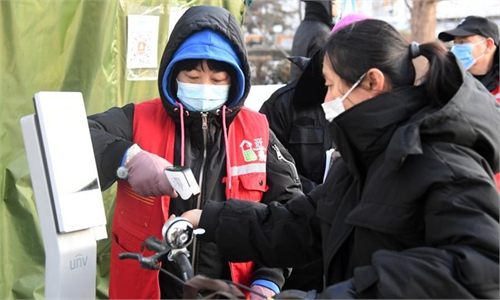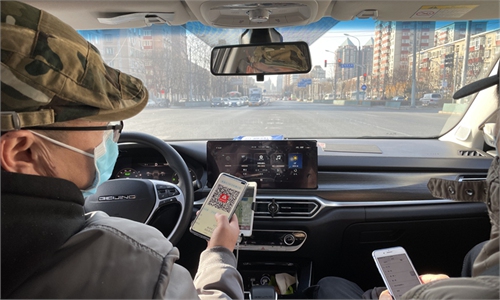Beijing car-hailing platforms face suspension for failing to implement anti-epidemic measures

A passenger scans a health code provided by a car-hailing driver in Beijing on Monday, the first day that Beijing required car hailing services to register the health codes of passengers. Photo: Liu Caiyu/GT
Beijing Center for Disease Control and Prevention (CDC) released Tuesday a new epidemic prevention guideline for taxi and car-hailing platforms, saying that if drivers fail to implement anti-epidemic measures, their vehicles will face a seven-day suspension of operations.
The guideline came one day after the Beijing municipal government warned of a circuit-breaker mechanism as a punishment for taxi firms and car-hailing platforms if they don't implement coronavirus control measures effectively.
Drivers must disinfect their vehicles after picking up passengers from outside Beijing at airports, high-speed trains and intercity railways.
Authorities will supervise drivers in implementing the measures through on-board audio and video monitoring, said the guideline.
The guideline further pointed out that if drivers fail to perform their duties more than three times, their operation qualification will be cancelled.
It also specifies that new drivers should have a certificate of a negative nucleic acid test result given within three days of starting work. Taxi firms and car-hailing platforms have to organize drivers to undergo regular nucleic acid tests and carry out vaccination programs for them.
Beijing has beefed up epidemic prevention measures as it continues to see sporadic cases in the city and the outbreak continues to worsen in other cities, including its neighboring Hebei Province.
The move comes after drivers repeatedly tested positive for the coronavirus. One driver at a ride-hailing platform in Beijing's Shunyi district tested positive over the weekend, forcing local authorities to track down at least 144 passengers as close contacts.
On Monday, Beijing made it compulsory for passengers to scan health QR codes in order to use ride-hailing platforms and taxis.


